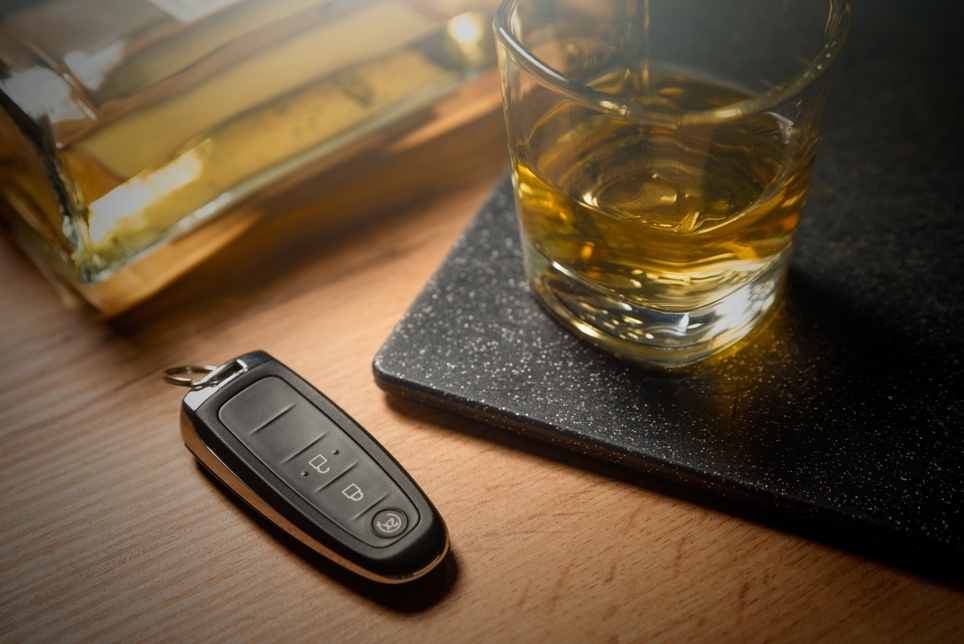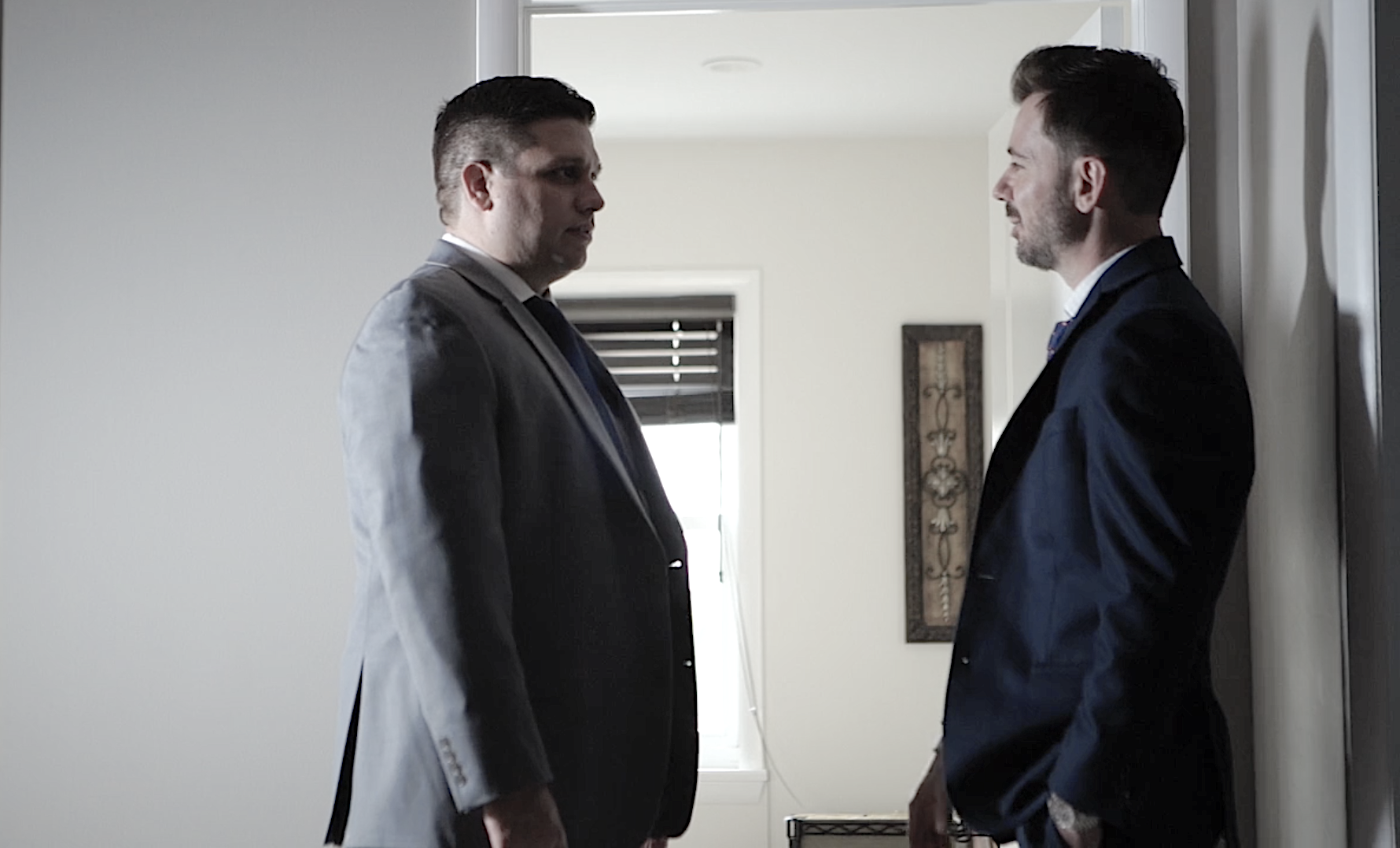
Facing a DUI/DWI arrest can be a daunting and stressful experience, often leaving you uncertain about what lies ahead. Whether this is your first encounter with the law or a repeat offense, the impact of a DUI/DWI charge can extend far beyond the immediate consequences, affecting your personal and professional life. It's natural to feel anxious about how this may shape your future.
However, it's important to remember that being charged does not automatically mean conviction. Understanding the legal process and your rights is the first step toward protecting your future. With the support of Camili & Capo, PA, you can navigate the complexities of New Jersey’s DUI/DWI laws and work toward minimizing the consequences of your charge.
This guide will walk you through each stage of the DUI/DWI process in New Jersey, from the initial arrest to possible outcomes, so you can be better prepared and make informed decisions along the way.
Step 1. The Arrest
The process begins when law enforcement pulls you over on suspicion of DUI/DWI. The officer may observe indicators of impairment, such as erratic driving, the odor of alcohol, or slurred speech. You will likely be asked to perform standardized field sobriety tests and may be required to take a breathalyzer test to measure your blood alcohol concentration (BAC). If the officer establishes probable cause that you are driving under the influence, you will be placed under arrest and taken into custody.
In some cases, the situation may escalate if illegal substances are discovered during the stop, leading to additional charges. This makes it even more critical to have legal representation right away.
What to Do:
- Remain Calm: Cooperate with the officer and avoid any aggressive or confrontational behavior.
- Understand Your Rights: You have the right to remain silent and request an attorney. Exercise this right to avoid self-incrimination.
- Contact a Lawyer: Reach out to a New Jersey criminal defense attorney at Camili & Capo, PA as soon as possible.
Step 2. Booking and Processing
After your arrest, you will be brought to the police station for booking. This involves recording your personal information, taking fingerprints, and photographing you for a mugshot. You may also be asked to take additional chemical tests to measure your blood alcohol concentration (BAC).
What to Do:
- Provide Basic Information: Cooperate with the booking process but avoid discussing the details of your case without your attorney present.
- Request a Copy of the Report: Ask for copies of any paperwork related to your arrest and booking, including any traffic tickets issued during the stop. These can be vital for building your defense.
Step 3. Initial Court Appearance
Within a few days of your arrest, you will attend your initial court appearance, known as an arraignment, in municipal court. During this hearing, the formal charges against you will be presented, and you will be requested to enter a plea (guilty, not guilty, or no contest). It's crucial to consult with your attorney before this hearing to fully understand your options and the implications of your plea.
What to Do:
- Consult Your Attorney: Before the arraignment, discuss your case and plea options with your attorney.
- Enter Your Plea: Follow your attorney’s advice on how to plead, considering your specific circumstances and the recommended legal strategy.
Step 4. Pre-Trial Motions and Hearings
Following the arraignment, there may be several pre-trial motions and hearings. During this phase, your lawyer will gather crucial evidence, carefully review the prosecution's case, and, if warranted, file motions to suppress evidence or dismiss the charges against you.
What to Do:
- Stay Informed: Make sure to attend all hearings and maintain close communication with your attorney.
- Prepare Your Defense: Work with your attorney to build a strong defense strategy, including gathering any evidence or witnesses that may support your case.
Step 5. Plea Bargaining
In many DUI/DWI cases, the prosecution and defense may engage in plea bargaining to reach a mutually agreeable resolution without going to trial. This could involve pleading guilty to a lesser charge in exchange for reduced penalties.
What to Do:
- Evaluate Offers: Carefully consider any plea offers with your attorney, weighing the potential benefits and drawbacks.
- Make an Informed Decision: Decide whether to accept a plea deal or proceed to trial based on your attorney’s advice and the specifics of your case.
Step 6. Trial
If your case goes to trial, both sides will present their evidence and arguments before a judge or jury. Your attorney will cross-examine the prosecution's witnesses, challenge their evidence, and present your defense.
What to Do:
- Be Prepared: Work closely with your attorney to prepare for trial, including reviewing your testimony and understanding the court procedures.
- Maintain Composure: Attend all trial dates, dress appropriately, and conduct yourself respectfully in court.
Step 7. Sentencing
If you are found guilty, the judge will impose a sentence based on the severity of the offense and any prior convictions. Sentencing can include fines, jail time, community service, probation, and mandatory participation in alcohol education programs.
What to Do:
- Follow Court Orders: Adhere to all aspects of your sentence to avoid additional legal complications.
- Seek Support: Utilize any court-ordered programs or counseling services to address underlying issues and prevent future offenses.
Step 8. Post-Conviction Options
After sentencing, you may have options for post-conviction relief, such as filing an appeal or seeking expungement of your record.
What to Do:
- Discuss with Your Attorney: Explore post-conviction options with your attorney to determine the best course of action.
- Take Action: Follow through on any steps necessary to pursue appeals or expungements, if applicable.
Get the Support You Need from Camili & Capo, PA – Your Trusted New Jersey DUI/DWI Attorneys
A DUI/DWI charge can be overwhelming, but you don’t have to go through it alone. At Camili & Capo, PA, we understand the emotional and legal challenges you’re facing. Our compassionate and knowledgeable team is here to provide clear guidance, helping you understand your options and develop a strong defense based on the facts of your case.
We represent clients throughout New Jersey, including in Newark, New Brunswick, Totowa, Paterson, Hackensack, Jersey City, and beyond. Contact us today for a confidential consultation, and take the first step toward protecting your future.

